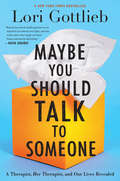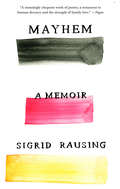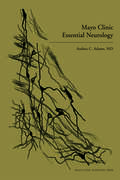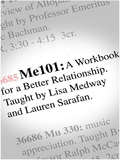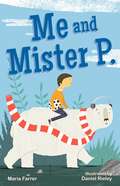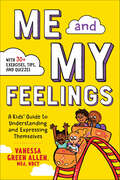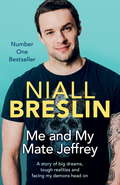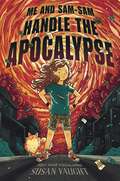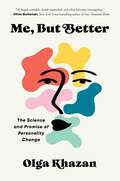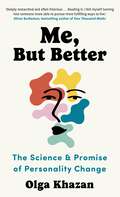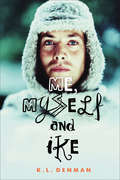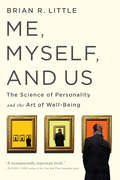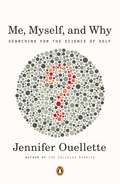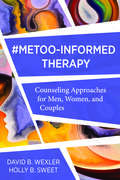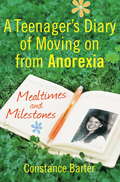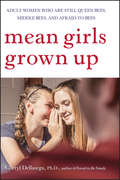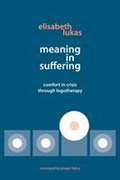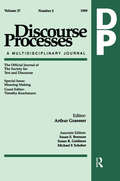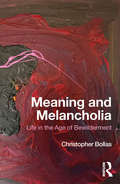- Table View
- List View
Maybe You Should Talk to Someone: A Therapist, HER Therapist, and Our Lives Revealed
by Lori GottliebINSTANT NEW YORK TIMES BESTSELLER!Now being developed as a television series with Eva Longoria and ABC!&“Rarely have I read a book that challenged me to see myself in an entirely new light, and was at the same time laugh-out-loud funny and utterly absorbing.&”—Katie Couric &“This is a daring, delightful, and transformative book.&”—Arianna Huffington, Founder, Huffington Post and Founder & CEO, Thrive Global &“Wise, warm, smart, and funny. You must read this book.&”—Susan Cain, New York Times best-selling author of QuietFrom a New York Times best-selling author, psychotherapist, and national advice columnist, a hilarious, thought-provoking, and surprising new book that takes us behind the scenes of a therapist&’s world—where her patients are looking for answers (and so is she). One day, Lori Gottlieb is a therapist who helps patients in her Los Angeles practice. The next, a crisis causes her world to come crashing down. Enter Wendell, the quirky but seasoned therapist in whose office she suddenly lands. With his balding head, cardigan, and khakis, he seems to have come straight from Therapist Central Casting. Yet he will turn out to be anything but. As Gottlieb explores the inner chambers of her patients&’ lives — a self-absorbed Hollywood producer, a young newlywed diagnosed with a terminal illness, a senior citizen threatening to end her life on her birthday if nothing gets better, and a twenty-something who can&’t stop hooking up with the wrong guys — she finds that the questions they are struggling with are the very ones she is now bringing to Wendell. With startling wisdom and humor, Gottlieb invites us into her world as both clinician and patient, examining the truths and fictions we tell ourselves and others as we teeter on the tightrope between love and desire, meaning and mortality, guilt and redemption, terror and courage, hope and change. Maybe You Should Talk to Someone is revolutionary in its candor, offering a deeply personal yet universal tour of our hearts and minds and providing the rarest of gifts: a boldly revealing portrait of what it means to be human, and a disarmingly funny and illuminating account of our own mysterious lives and our power to transform them.
Mayhem: A Memoir
by Sigrid RausingA searingly powerful memoir about the impact of addiction on a family. In the summer of 2012 a woman named Eva was found dead in the London townhouse she shared with her husband, Hans K. Rausing. The couple had struggled with drug addiction for years, often under the glare of tabloid headlines. Now, writing with singular clarity and restraint, Hans’ sister, the editor and publisher Sigrid Rausing, tries to make sense of what happened. In Mayhem, she asks the difficult questions those close to the world of addiction must face. “Who can help the addict, consumed by a shaming hunger, a need beyond control? There is no medicine: the drugs are the medicine. And who can help their families, so implicated in the self-destruction of the addict? Who can help when the very notion of ‘help’ becomes synonymous with an exercise of power; a familial police state; an end to freedom, in the addict’s mind?” An eloquent and timely attempt to understand the conundrum of addiction—and a memoir as devastating as it is riveting.
Mayo Clinic Essential Neurology
by Andrea C. AdamsMayo Clinic Essential Neurology covers the full scope of neurology by combining a focused need-to-know format with core basics along with diagnosis and treatment guidelines. More than 75 color illustrations and numerous therapeutic tables help residents and clinicians diagnose, treat, and manage the most commonly encountered neurologic problems. To
Mcat Psychology And Sociology Review, 3rd Edition: Complete Behavioral Sciences Content Review + Practice Tests (Graduate School Test Preparation Ser.)
by The Princeton The Princeton ReviewMake sure you’re studying with the most up-to-date prep materials! Look for the newest edition of this title, The Princeton Review MCAT Psychology and Sociology Review, 4th Edition (ISBN: 9780593516225, on-sale November 2022). Publisher's Note: Products purchased from third-party sellers are not guaranteed by the publisher for quality or authenticity, and may not include access to online tests or materials included with the original product.
Me 101: A Workbook for a Better Relationship
by Lisa Medway Lauren SarafanMe 101: A Workbook for a Better Relationship provides the structure and format for you to openly and honestly express who you truly are to yourself and your romantic partner. Your responses to our clever quizzes and questionnaires will allow you the freedom to be who you really are in your relationship. By revealing your authentic self, your proclivities and passions, boundaries and fantasies, Me 101 will help you create a climate of fun and intimacy that you never dreamed was possible.
Me and Mister P.: Me And Mister P. , Book Two (Me and Mister P. #2)
by Maria Farrer Daniel RieleyMister P. is the coolest friend a kid could wish for!Arthur is fed up with his younger brother Liam getting all the attention from their parents just because he's a little bit different from other kids. Arthur just wants a normal family and a normal life, where he can play soccer and hang out with friends -- without Liam always being so embarrassing. Just when Arthur can't take it anymore, Mister P. -- a polar bear with a suitcase -- shows up. He doesn't talk, and Arthur is scared of him at first. (He is a polar bear, after all!) But he isn't dangerous. In fact, Mister P. is lots of fun, and even gets along with Liam. He comes with Arthur to school and soccer, and makes life an adventure! Still, Mister P. can't stay forever. But before he goes, he helps as only a polar bear can... leading Arthur to see his brother in a whole new way.
Me and My Feelings: A Kids' Guide to Understanding and Expressing Themselves
by Vanessa Green AllenWhen a big feeling comes along…you can handle it! Teach kids ages 7 to 10 how to manage their feelings.Sometimes, emotions like anger or jealousy or excitement can seem too big to keep inside. Me and My Feelings is here to teach kids that it's okay to have big feelings! They will learn how to calm down those strong emotions so they don't feel overwhelmed and can continue to take on the world.This book gives kids the skills to stay in control—by breathing deeply, saying positive things to themselves, talking about their feelings instead of keeping them inside, and more. Help young girls and boys learn to deal with all kinds of feelings, including the hard ones like sadness, anxiety, or even fear.Inside Me and My Feelings, you'll find:TANGIBLE IDEAS THAT HELP: This book is packed with informative ways to help kids handle their feelings. They can use the exercises to see which tips, tricks, and habits work best for them.QUIZZES & ACTIVITIES: Kids can get to know themselves with quizzes like "Do My Emotions Rule Me?," along with other fun exercises and activities created especially for kids ages 7-10.EMPATHY FOR THE EMOTIONS OF OTHERS: When kids understand their own emotions and feelings, they can also empathize with other people's feelings—like their family and friends.With Me and My Feelings, the next time big feelings get too big—kids will know just what to do!
Me and My Mate Jeffrey: A story of big dreams, tough realities and facing my demons head on
by Niall BreslinIn his book, Niall Breslin speaks openly about living with depression and anxiety, and his crippling journey to finally acknowledging 'Jeffrey' - the name he chose for it - years after he took the decision to conceal his growing mental health issues from the world, at age 15.Told with raw honesty, it is a story of the demons that lay beneath outward success, and how they impacted on his career in sports and later music, as he coped with a condition that at times seemed hell bent on wrecking everything in its wake. It is also the story of a road to reconciliation with brokenness - beginning after a massive panic attack before a live TV appearance in 2012 - leading to brighter horizons.Me and My Mate Jeffrey is an essential book for anyone who knows what it is to feel alone, and who doesn't know how to ask for help - or anyone who wants to better understand that journey.
Me and My Mate Jeffrey: A story of big dreams, tough realities and facing my demons head on
by Niall BreslinIn his book, Niall Breslin speaks openly about living with depression and anxiety, and his crippling journey to finally acknowledging 'Jeffrey' - the name he chose for it - years after he took the decision to conceal his growing mental health issues from the world, at age 15.Told with raw honesty, it is a story of the demons that lay beneath outward success, and how they impacted on his career in sports and later music, as he coped with a condition that at times seemed hell bent on wrecking everything in its wake. It is also the story of a road to reconciliation with brokenness - beginning after a massive panic attack before a live TV appearance in 2012 - leading to brighter horizons.Me and My Mate Jeffrey is an essential book for anyone who knows what it is to feel alone, and who doesn't know how to ask for help - or anyone who wants to better understand that journey.
Me and Sam-Sam Handle the Apocalypse
by Susan Vaught<P><P> Jesse is on the case when money goes missing from the library and her dad is looking like the #1 suspect in Edgar Award–winning author Susan Vaught’s latest middle grade mystery. <P><P>I could see the big inside of my Sam-Sam. I had been training him for 252 days with mini tennis balls and pieces of bacon, just to prove to Dad and Mom and Aunt Gus and the whole world that a tiny, fluffy dog could do big things if he wanted to. I think my little dog always knew he could be a hero. I just wonder if he knew about me. <P><P>When the cops show up at Jesse’s house and arrest her dad, she figures out in a hurry that he’s the #1 suspect in the missing library fund money case. With the help of her (first and only) friend Springer, she rounds up suspects (leading to a nasty confrontation with three notorious school bullies) and asks a lot of questions. But she can’t shake the feeling that she isn’t exactly cut out for being a crime-solving hero. <P><P>Jesse has a neuro-processing disorder, which means that she’s “on the spectrum or whatever.” As she explains it, “I get stuck on lots of stuff, like words and phrases and numbers and smells and pictures and song lines and what time stuff is supposed to happen.” <P><P>But when a tornado strikes her small town, Jesse is given the opportunity to show what she's really made of—and help her dad. <P><P>Told with the true-as-life voice Susan Vaught is known for, this mystery will have you rooting for Jesse and her trusty Pomeranian, Sam-Sam.
Me, But Better: The Science and Promise of Personality Change
by Olga KhazanIs it really possible to change your entire personality in a year? An award-winning journalist experiments with her own personality to find out—and reveals the science behind lasting change.In recent years, Olga Khazan had been spiraling toward an existential crisis. Though she treasured her loving relationship and her dream job, her neurotic personality often left her snatching dissatisfaction from the jaws of happiness. While her overachieving had always been a professional asset, Olga lately felt like her brittle disposition could shatter under the weight of just one more thing—but could she really change her entire personality? Research shows that you can alter your personality traits by behaving in ways that align with the kind of person you&’d like to be—a process that can make you happier, healthier, and more successful. In Me, But Better, Olga embarks on an experiment to see whether it&’s possible to go from dwelling in dread to &“radiating joy.&” For one year, Olga reluctantly clicked &“yes&” on a bucket list of new experiences—from meditation to improv to sailing—that forced her to at least act happy. With a skeptic&’s eye, Olga brings you on her journey through the science of personality, presenting evidence-backed techniques to help you change your mind for the better. Sharply witty and deeply fascinating, Me, But Better offers a probing inquiry into what it means to live a fulfilling life, and how you can keep diving into change, no matter how uncomfortable it feels.
Me, But Better: The Science and Promise of Personality Change
by Olga KhazanIn recent years, Olga Khazan had been spiraling toward an existential crisis. Though she treasured her loving, long-term relationship and her dream job, she often caught herself snatching dissatisfaction from the jaws of happiness. Her neurotic overachieving had always been a professional asset, but lately, Olga felt that her brittle disposition could shatter under the weight of just one more thing. She knew something had to give-but was it really possible to change her entire approach to life?In Me, But Better, Olga embarks on a year-long experiment to see if it's truly possible to change your personality, sample size: one. Scientifically, personality consists of five sliding-scale traits: extroversion (how sociable you are); conscientiousness (how self-disciplined and organized you are); agreeableness (how warm and empathetic you are); openness (how receptive you are to new ideas and activities); and neuroticism (how depressed or anxious you are). But research shows that you can alter these traits by consistently behaving in ways that align with the kind of person you'd like to be. And that, in turn, can make you happier, healthier, and more successful.So, for one year, Olga decided to fake it until she made it. She reluctantly clicked "yes" on a bucket list of new experiences, from meditation to improv to sailing, that forced her to at least act happy, healthy, and well-adjusted, in the hope that she would actually become those things. With a skeptic's eye, Olga brings you on her personal journey through the science of personality, presenting evidence-backed techniques to change your mind for the better. Based on her viral article in The Atlantic, Me, But Better is a probing inquiry into what it means to live a fulfilling life, and how you can keep diving into change, no matter how uncomfortable it feels.
Me, But Better: The Science and Promise of Personality Change
by Olga KhazanIn recent years, Olga Khazan had been spiraling toward an existential crisis. Though she treasured her loving, long-term relationship and her dream job, she often caught herself snatching dissatisfaction from the jaws of happiness. Her neurotic overachieving had always been a professional asset, but lately, Olga felt that her brittle disposition could shatter under the weight of just one more thing. She knew something had to give-but was it really possible to change her entire approach to life?In Me, But Better, Olga embarks on a year-long experiment to see if it's truly possible to change your personality, sample size: one. Scientifically, personality consists of five sliding-scale traits: extroversion (how sociable you are); conscientiousness (how self-disciplined and organized you are); agreeableness (how warm and empathetic you are); openness (how receptive you are to new ideas and activities); and neuroticism (how depressed or anxious you are). But research shows that you can alter these traits by consistently behaving in ways that align with the kind of person you'd like to be. And that, in turn, can make you happier, healthier, and more successful.So, for one year, Olga decided to fake it until she made it. She reluctantly clicked "yes" on a bucket list of new experiences, from meditation to improv to sailing, that forced her to at least act happy, healthy, and well-adjusted, in the hope that she would actually become those things. With a skeptic's eye, Olga brings you on her personal journey through the science of personality, presenting evidence-backed techniques to change your mind for the better. Based on her viral article in The Atlantic, Me, But Better is a probing inquiry into what it means to live a fulfilling life, and how you can keep diving into change, no matter how uncomfortable it feels.
Me, Myself and Ike
by K. L. DenmanAfter watching a tv program about Otzi, a 5,000-year-old Ice Man, Kit's friend Ike becomes convinced that Kit's destiny is to become the next ice man -- a source of information for future generations. Together they obtain artifacts they think will accurately reflect life in the early twenty-first century and plan their journey to a nearby mountain. Kit gets tattoos similar to Otzi's, writes a manifesto and tries to come to terms with making the ultimate sacrifice. As he grows more and more agitated and isolated, his family and friends suspect that something is terribly wrong, but before they can discover the true severity of the situation, Kit and Ike set off on what could be their last journey.
Me, Myself, and Us: The Science of Personality and the Art of Well-Being
by Brian R. LittleIn the past few decades, personality psychology has made considerable progress in raising new questions about human nature--and providing some provocative answers. New scientific research has transformed old ideas about personality based on the theories of Freud, Jung, and the humanistic psychologies of the nineteen sixties, which gave rise to the simplistic categorizations of the Meyer-Briggs Inventory and the 'enneagream'. But the general public still knows little about the new science and what it reveals about who we are. In this book, Brian Little, one of the psychologists who helped re-shape the field, provides the first in-depth exploration of the new personality science and its provocative findings for general readers. The book explores questions that are rooted in the origins of human consciousness but are as commonplace as yesterday’s breakfast conversation. Are our first impressions of other people’s personalities usually fallacious? Are creative individuals essentially maladjusted? Are our personality traits, as William James put it "set like plaster” by the age of thirty? Is a belief that we are in control of our lives an unmitigated good? Do our singular personalities comprise one unified self or a confederacy of selves, and if the latter, which of our mini-me-s do we offer up in marriage or mergers? Are some individuals genetically hard-wired for happiness? Which is the more viable path toward human flourishing, the pursuit of happiness or the happiness of pursuit? Little provides a resource for answering such questions, and a framework through which readers can explore the personal implications of the new science of personality. Questionnaires and interactive assessments throughout the book facilitate self-exploration, and clarify some of the stranger aspects of our own conduct and that of others. Brian Little helps us see ourselves, and other selves, as somewhat less perplexing and definitely more intriguing. This is not a self-help book, but students at Harvard who took the lecture course on which it is based claim that it changed their lives.
Me, Myself, and Why
by Jennifer OuelletteA fascinating tour through the science behind who we are and how we got this way--from the author of The Calculus Diaries As diverse as people appear to be, all of our genes and brains are nearly identical. In Me, Myself, and Why, Jennifer Ouellette dives into the miniscule ranges of variation to understand just what sets us apart. She draws on cutting-edge research in genetics, neuroscience, and psychology--enlivened as always with her signature sense of humor--to explore the mysteries of human identity and behavior. Readers follow her own surprising journey of self-discovery as she has her genome sequenced, her brain mapped, her personality typed, and even samples a popular hallucinogen. Bringing together everything from Mendel's famous pea plant experiments and mutations in The X-Men to our taste for cilantro and our relationships with virtual avatars, Ouellette takes us on an endlessly thrilling and illuminating trip into the science of ourselves.
MeToo-Informed Therapy: Counseling Approaches for Men, Women, and Couples
by David B. Wexler Holly B. SweetHelp for both victims and offenders of sexual misconduct in the age of #MeToo. The rapid rise of the #MeToo movement has created a seismic shift in how we work with sexual misconduct that occurs in relationships between men and women, but the scope and impact of behaviors within that category is full of gray areas. #MeToo-Informed Therapy guides therapists in finding effective ways to help men who offend, empowering women to find their voices, exploring ways for men to be allies in the #MeToo movement, and helping couples whose relationships can be enhanced by understanding #MeToo issues. Traditional male and female gender role norms are discussed in the context of how they might contribute to incidents of sexual misconduct. Importantly, the book also takes a look at how intersectional factors around race, sexual orientation, and socioeconomic status adds further complexity to these questions. Here, therapists will find the information and perspective they need to support their clients.
Mealtimes and Milestones: A Teenager's Diary Of Moving On From Anorexia
by Constance BarterAn astonishingly moving and mature account of a young woman's struggle with anorexia nervosa, a serious mental illness affecting 1.1 million people in the UK. At fourteen years of age, Constance Barter was admitted as an in-patient to a specialist eating disorders unit where she remained for seven months. During that time, she kept a diary which sheds light on what it means to have anorexia, how it affects your life, and how it is not just a faddy diet or attention seeking disorder. Constance is an example to anyone suffering from this potentially life-threatening illness that with perseverance and support it can be beaten and sufferers can go on and lead a fulfilling, everyday life. This inspirational diary will help and inspire other sufferers to seek help and overcome their illness as well as providing an invaluable insight into the nature of the illness to families and friends.
Mealtimes and Milestones: A teenager's diary of moving on from anorexia
by Constance BarterAn astonishingly moving and mature account of a young woman's struggle with anorexia nervosa, a serious mental illness affecting 1.1 million people in the UK. At fourteen years of age, Constance Barter was admitted as an in-patient to a specialist eating disorders unit where she remained for seven months. During that time, she kept a diary which sheds light on what it means to have anorexia, how it affects your life, and how it is not just a faddy diet or attention seeking disorder. Constance is an example to anyone suffering from this potentially life-threatening illness that with perseverance and support it can be beaten and sufferers can go on and lead a fulfilling, everyday life. This inspirational diary will help and inspire other sufferers to seek help and overcome their illness as well as providing an invaluable insight into the nature of the illness to families and friends.
Mean Girls Grown Up
by Cheryl DellasegaAlmost every woman has experienced bullying. Whether her role was that of victim, aggressor, or bystander, the pain of relational aggression (female bullying) lasts long after the incident has passed. In Mean Girls Grown Up, Cheryl Dellasega explores why women are often their own worst enemies, offering practical advice for a variety of situations. Drawing upon extensive research and interviews, she shares real-life stories from women as well as the knowledge of experts who have helped women overcome the negative effects of aggression. Readers will hear how adult women can be just as vicious as their younger counterparts, learn strategies for dealing with adult bullies, how to avoid being involved in relational aggression, and more. Dellasega outlines how women can change their behavior successfully by shifting away from aggression and embracing a spirit of cooperation in interactions with others.
Meaning In Suffering: Comfort In Crisis Through Logotherapy
by Elisabeth LukasThis 1986 classic has been renewed with fresh graphics and crisp typesetting. The author’s artistic discovery of the uniqueness of each individual shines across dozens of case studies and examples; thus she illuminates the potential for meaning in the presence of even intractable pain, guilt, and suffering. Lukas demonstrates a living logotherapy, not by standardized techniques, but by the compassion and insight she brings into each therapeutic relationship. "The true heroes of life are not the triumphant victors, but the defeated who find a ray of hope" (p. 52).
Meaning Making: A Special Issue of Discourse Processes
by Timothy KoschmannThis special issue focuses on the difficult problem of how observers and researchers can make sense of how collaborating participants develop a shared understanding both of their task and their own participation in it. Or stated in another way, how can we derive meaning from their emergent and situated meaning making? Meaning making has been studied under a variety of names, and can be conceptualized on different levels of abstraction and from a variety of perspectives. The goal is to attempt to tease apart some of these views, while at the same time seeking means to bring them together in order to provide a more fully elaborated picture. This issue comes with a CD-ROM containing the brief video segment which all authors analyzed in the preparation of their contributions.
Meaning and Aging: Humanist Perspectives (Studies in Humanism and Atheism)
by Anja Machielse Joachim DuyndamThe main objective of this book is to add, from a humanist perspective, new interdisciplinary insights and research results to the current academic debate on aging. The collection aims to enhance and complement the predominantly biomedical and sociological debates and provide a more comprehensive and highly topical view on aging and old age. By purveying a meaning-in-life perspective to the current debate we want to enrich and to deepen the research on aging, thus aspiring to an ideal of meaningful aging. The starting point of this book is a humanistic meaning frame for addressing basic needs of a meaningful existence, such as having goals in life, a sense of self-worth, connectedness with others, moral justification, a certain degree of understanding (comprehensibility), direction and influence with a view to cohesion in life, and not in the least place: (living) pleasure or excitement. Taken together, the essays show that experiencing a meaningful life contributes to one’s mentalresilience, conceived as the ability to realize a humane individuality (autonomy) in thinking and acting in situations of adversity and vulnerability, particularly those faced by older people.
Meaning and Melancholia: Life in the Age of Bewilderment
by Christopher BollasMeaning and Melancholia: Life in the Age of Bewilderment sees Christopher Bollas apply his creative and innovative psychoanalytic thinking to various contemporary social, cultural and political themes. This book offers an incisive exploration of powerful trends within, and between, nations in the West over the past two hundred years. The author traces shifts in psychological forces and ‘frames of mind’, that have resulted in a crucial ‘intellectual climate change’. He contends that recent decades have seen rapid and significant transformations in how we define our ‘selves’, as a new emphasis on instant connectedness has come to replace reflectiveness and introspection. Bollas argues that this trend has culminated in the current rise of psychophobia; a fear of the mind and a rejection of depth psychologies that has paved the way for what he sees as hate based solutions to world problems, such as the victory of Trump in America and Brexit in the United Kingdom. He maintains that, if we are to counter the threat to democracy posed by these changes and refind a more balanced concept of the self within society, we must put psychological insight at the heart of a new kind of analysis of culture and society. This remarkable, thought-provoking book will appeal to anyone interested in politics, social policy and cultural studies, and in the gaining of insight into the ongoing challenges faced by the Western democracies and the global community.
Meaning and Spirituality in Sport and Exercise: Psychological Perspectives (Routledge Research in Sport, Culture and Society)
by Noora J Ronkainen Mark S NestiDespite the growing literature on spirituality and its positive impact on well-being in health psychology, education, occupational psychology and leisure studies, it has been less examined in sport studies. Meaning and Spirituality in Sport and Exercise: Psychological Perspectives examines the many forms of spirituality in sport from a psychological perspective, from moments of transcendence and finding deeper meaning and value to prayer before an important competition or in adversity, such as a career-threatening injury. Based on the latest research and the Nesti’s experience in applied sport psychology service delivery, this book covers a range of novel topics linking spirituality to athlete development, injury, exercise motivation, and ageing athletes, and offers applied, practical guidance for sport psychologists working with spiritual athletes. Offering a unique contribution to the study of spirituality in sport, and to sport psychology practice, this book is vital reading for any upper-level student or academic working in sport and exercise psychology, religion and sport, or the philosophy of sport, and any practising sport psychologist.
